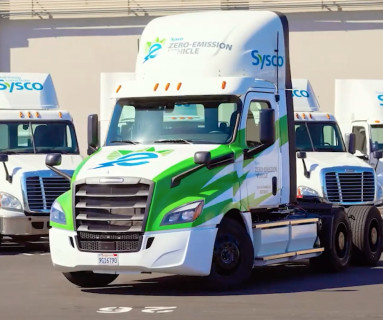Sysco unveils vision for first EV hub: 40 electric tractors and refrigerated trailers; 4MWh ESS and 1.5MW additional solar
Green Car Congress
APRIL 25, 2023
Currently, Sysco operates 11 Freightliner battery electric eCascadia tractors at its Riverside facility and expects to deploy 20 total by summer 2023. To accommodate the energy demands of this growing fleet, the Riverside site will also feature 4 MWh of battery storage and will increase its solar power generation by an additional 1.5



























Let's personalize your content